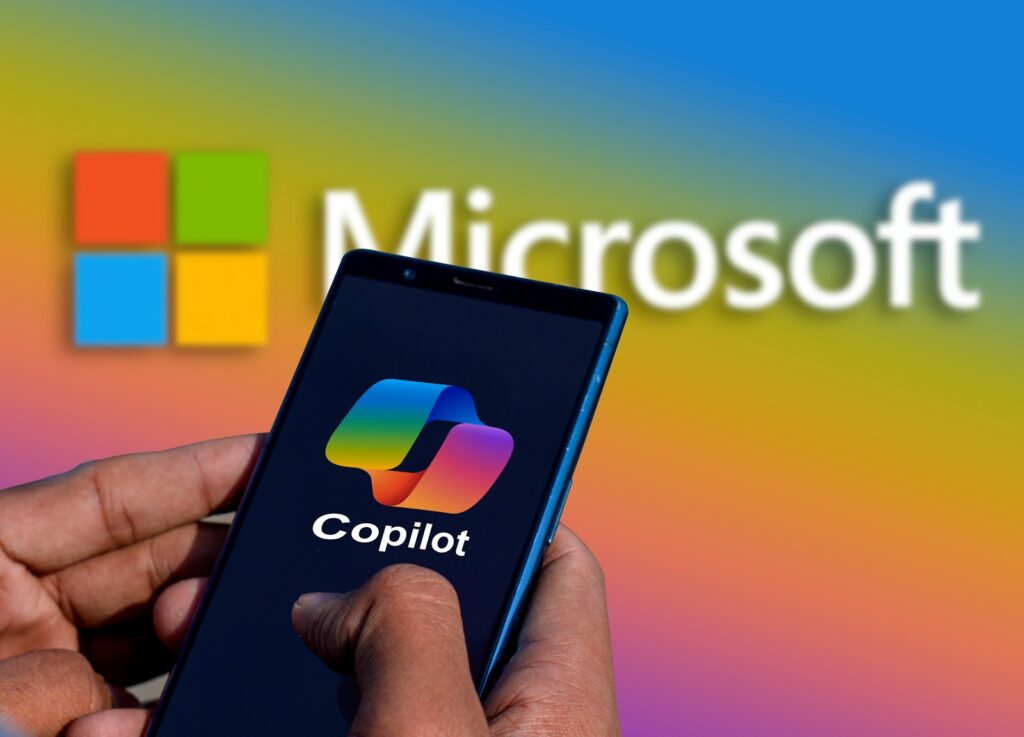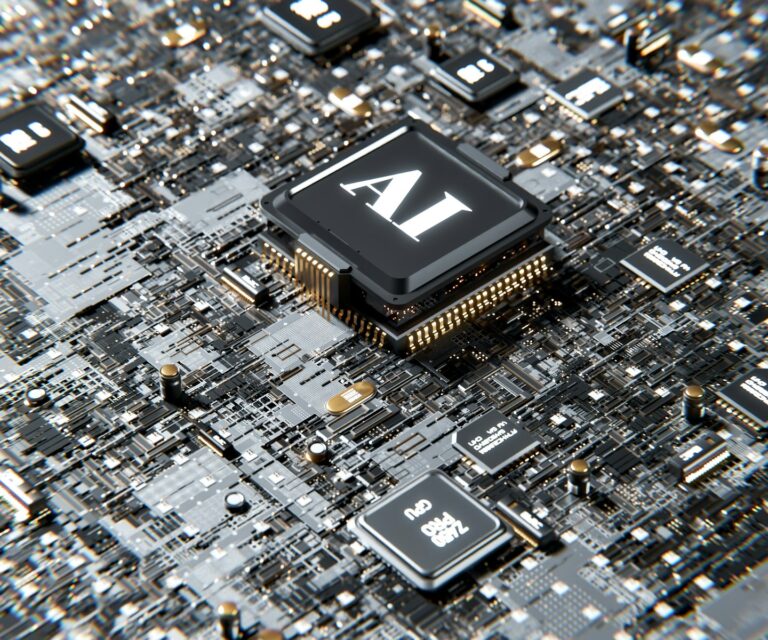AI’s Impact On the Future of Smartphones
Last Updated on: 4th June 2024, 12:45 pm
The smartphone industry is changing a lot because of artificial intelligence (AI). This is happening in 2024, and it’s not just a guess – it’s really happening. Big tech companies like Google, Microsoft, and Meta are all part of this change. Even Apple, known for being innovative, is said to be getting into AI with new features.
This report talks about how generative AI, which is a new kind of AI, is affecting smartphones. It’s turning them into more than just communication devices. Now, smartphones can be smart companions that create unique content and make decisions.
Understanding AI In The Context Of Mobile Technology
According to Cnet.com, Artificial Intelligence (AI), particularly its subset Machine Learning (ML), has become a cornerstone of modern mobile technology. This integration marks a significant evolution from the initial role of smartphones as mere communication devices. In a span of just a few years, from 2017 to 2023, AI has transformed from a novel feature to a standard expectation in mobile phones.
The journey of AI in smartphones began with basic functionalities but has rapidly advanced to more complex and integrated roles.
In 2017, only a minuscule 3% of smartphones were equipped with AI capabilities. By 2020, this number soared to 35%, signaling a paradigm shift in the industry.
This growth trajectory illustrates not just the technological advancements but also the changing consumer expectations and demands for smarter, more intuitive devices.
AI’s presence in mobile technology is multifaceted. It extends beyond the hardware and permeates into the software realm, where it enhances user experiences in numerous ways.
One of the most notable advancements is the development of dedicated AI processors. These specialized chips, introduced by leading manufacturers like Huawei and Apple, are not just about improving performance; they represent a strategic shift towards more efficient, AI-centric mobile devices. These processors ensure that AI tasks are executed faster and more effectively, enhancing overall device performance while optimizing battery usage.
AI-Enabled Features & Their Impact
The integration of AI into smartphones has introduced a plethora of features that significantly enhance user experiences. Let’s delve into specific examples and examine their impact:
Google Pixel 8’s AI-Powered Features: Google’s Pixel 8 stands as a prime example of AI’s potential in enhancing smartphone functionality. The “Best Take” feature, powered by AI, allows users to swap facial expressions in group photos, adding a new level of creativity and control in photography. The “Magic Editor,” another AI-driven tool, enables users to manipulate photos in innovative ways, demonstrating the transformative power of AI in everyday smartphone use.
Qualcomm’s Snapdragon Processor: The Snapdragon 8 Gen 3 mobile processor from Qualcomm exemplifies the seamless integration of AI into smartphone operations. It’s designed to make interactions more conversational and natural, enhancing the overall user experience. This processor represents a significant step in making AI an integral part of the daily operations of a smartphone.
Motorola and Lenovo’s AI Initiatives: Other players like Motorola and Lenovo are not far behind in the AI race. They are actively working on embedding AI features into their smartphones and other devices, indicating a widespread industry trend towards AI-enhanced user experiences.
Apple’s AI Upgrades: Apple, a key player in the tech industry, is reportedly planning significant AI upgrades across its product line. This includes enhancements to Siri and Apple’s messaging apps, pointing towards a future where AI is deeply embedded in the functionality of every device.
On-Device AI Processing for Privacy and Security: An important aspect of AI integration in smartphones is the emphasis on privacy and security. By processing AI tasks locally on devices, personal data remains secure on the device. This approach not only addresses privacy concerns but also enables more personalized and efficient AI suggestions and interactions.

According to Aithority.com Companies like Samsung, Apple, and Huawei have launched smartphones with AI chips that can perform up to 5 trillion operations per second.
Privacy, Security, & Ethical Considerations

The integration of AI in smartphones brings to the fore crucial aspects of privacy, security, and ethical considerations:
Privacy & On-Device AI Processing
One of the biggest concerns in the age of AI is user privacy. To address this, many smartphone manufacturers are opting for on-device AI processing.
This means that AI tasks are processed locally on the user’s device rather than being sent to external servers. This approach ensures that personal data, such as photos and voice recordings, remain within the device, thereby safeguarding user privacy.
According to data from Statista, more than 80% of smartphone users consider AI-based security features essential for protecting their sensitive data.
Security Enhancements through AI
AI also plays a critical role in enhancing the security of smartphones. Features like facial recognition and biometric authentication are powered by AI algorithms, providing robust security measures that are difficult to breach. These AI-driven features ensure that only authorized users can access the device, thereby protecting sensitive personal and professional information.
Ethical Use of AI
With the increasing capabilities of AI, there arises a need for ethical guidelines to govern its use, particularly concerning AI-powered image and video editing tools. There is a potential for misuse of these tools, such as creating deep fakes or spreading misinformation. Tech companies and regulatory bodies must collaborate on establishing standards and guidelines to prevent the misuse of AI technologies and ensure they are used responsibly.
Authenticity Verification
As AI becomes more sophisticated in creating and editing content, the need for authenticity verification becomes paramount. There must be mechanisms to verify the authenticity of AI-generated content to prevent the spread of false information and maintain trust in digital media.
AI and Accessibility
Another important consideration is ensuring that AI technology is accessible and beneficial to all sections of society. This includes designing AI features that are inclusive and cater to the needs of people with disabilities, ensuring that the benefits of AI in smartphones are universally accessible.
The study published in the Journal of Medical Internet Research suggests that AI-driven health monitoring through smartphones has the potential to improve diagnostic accuracy by 34%
Market Trends & Consumer Electronics
The integration of AI into smartphones is not an isolated trend; it significantly influences the broader consumer electronics market. Here, we explore key market trends and their impact:
According to CNBC states that the global mobile AI market size is projected to grow to $80.28 billion by 2029, at a staggering rate of 28.5 percent every year. The report also highlights the impressive capabilities of AI in smartphones, from song recognition and product identification to predictive text
Increasing AI Chipset Integration
The smartphone market has witnessed a marked increase in the integration of AI chipsets. Initially, only a few high-end models featured AI capabilities, but now, even mid-range smartphones are equipped with AI processors. This shift demonstrates the growing importance of AI in enhancing device functionality and user experience.
Competition Among Key Players
The AI revolution in smartphones has intensified competition among manufacturers. Companies like Qualcomm and MediaTek dominate the market with their advanced AI chipsets. At the same time, tech giants like Apple and Google develop their own AI chips, tailoring them to their specific ecosystem requirements. This competition is driving rapid advancements in AI technology, benefiting consumers with better and more efficient smartphones.
Premiumization of Smartphones with AI
There is a noticeable trend towards premiumization in the smartphone market. Devices with advanced AI capabilities are often positioned as premium products, attracting consumers who are willing to pay extra for enhanced features and performance.
Global Market Dynamics
The global smartphone market has reached a stage of saturation, yet the demand for AI-enabled devices continues to grow. This growth is particularly notable in developing markets, where an increasing number of consumers are showing interest in advanced technology features. As a result, manufacturers are focusing on these markets to introduce AI-powered smartphones, catering to the rising demand.
Future Projections
Looking ahead, the saturation of the smartphone market is likely to set a ceiling for AI chipset integration in the short term. However, as economies in developing markets grow and consumer preferences evolve, there will likely be a shift towards higher-end, AI-capable smartphones. This shift will further drive innovation and competition in the AI space.
Conclusion
In this report, we have explored the transformative impact of artificial intelligence (AI) on the smartphone industry. From its inception as a novel feature to becoming a fundamental component, AI has reshaped how we interact with our mobile devices. The journey from basic functionalities to advanced, integrated AI systems highlights the rapid evolution and growing significance of AI in the smartphone sector.





